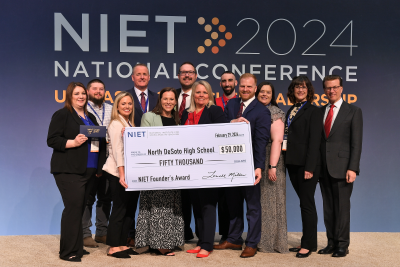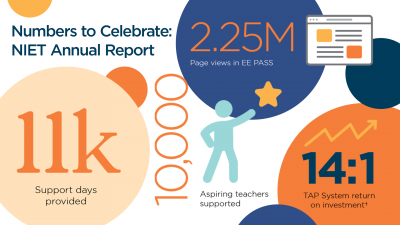Creating and Sustaining a Culture of School Improvement
Somerset, TX | 2019

The Scene
Located in rural Texas southwest of San Antonio, Somerset Independent School District (ISD) struggled for years to meet student academic achievement goals and was identified as "academically unacceptable" and "improvement required" under various state accountability systems.
The inability to meet student learning goals undermined community support and pride in the school system, and contributed to a growing inability to recruit and retain effective teachers and principals. Teachers did not want to teach classes with the highest numbers of struggling students, and achievement gaps persisted for English learners, special education, and high-poverty students.
The Challenge
Somerset ISD is located 15 miles southwest of downtown San Antonio and serves 3,956 students enrolled in six campuses from age 3 pre-K students in Head Start through 12th grade. Eighty-six percent of students are Hispanic, 83% are economically disadvantaged and 59% are considered at-risk.
Fifty-three percent of Somerset's teachers have five years or less experience in the classroom and most travel across several wealthier districts in San Antonio to reach Somerset, which has traditionally presented a significant challenge in retaining teachers.
The district also struggled with equitable distribution of effective classroom teachers.
The New Approach
What worked for Somerset was a system focused on support for effective classroom teaching and increased student academic achievement growth for the highest-need students.
The approach included new teacher leadership roles, as part of the school leadership team; school-based professional learning delivered by teacher leaders; support for principals to create distributed leadership teams; and strengthening the teacher pipeline to ensure that new teachers have the knowledge and skills to be effective on day one.
The Results
These improvements led to dramatic gains in student academic achievement, particularly for students with the greatest learning gaps, including economically disadvantaged students and students with limited English proficiency.
In 2018, these gains continued, with 80% of economically disadvantaged fifth-grade students passing standards in math and 77% of economically disadvantaged eighth-grade students passing standards in reading.
Limited English Proficiency (LEP) students raised their performance in math to 83% of fifth-grade students passing standards. In reading, LEP eighth-grade students raised their performance to 61% passing standards.
By building a system that supports every teacher and school leader to continue to learn and improve, Somerset is better supporting students to excel.



